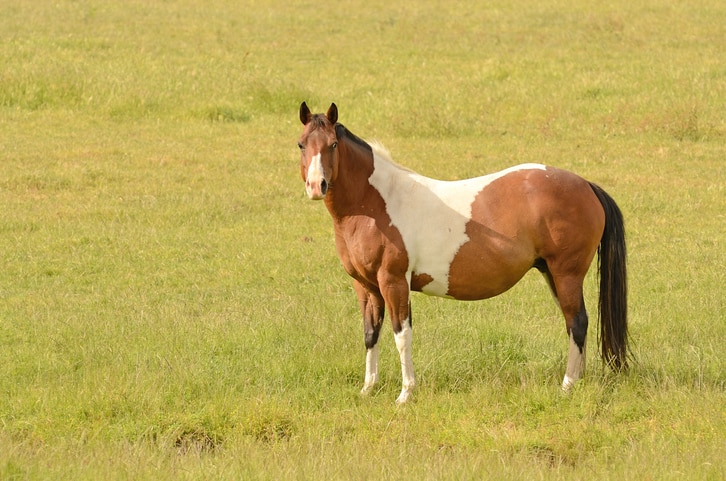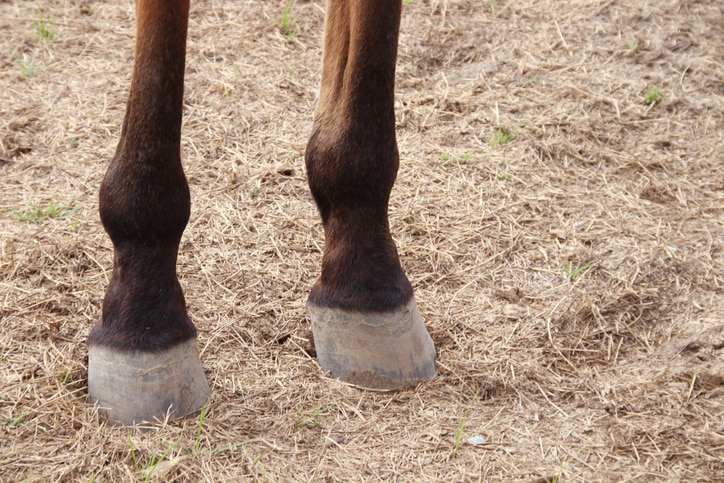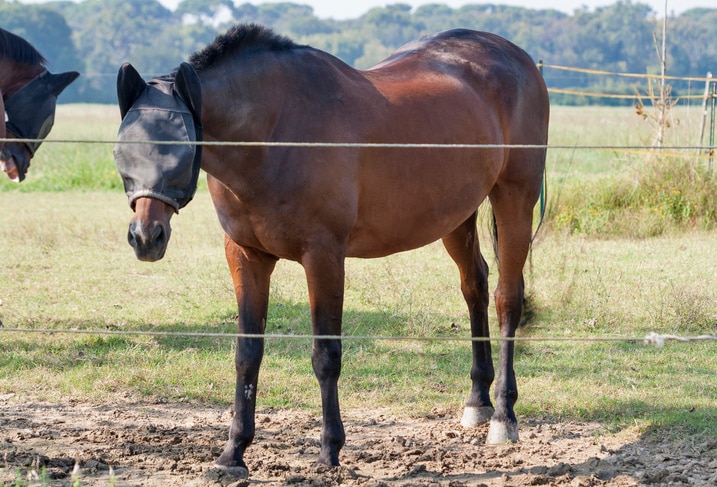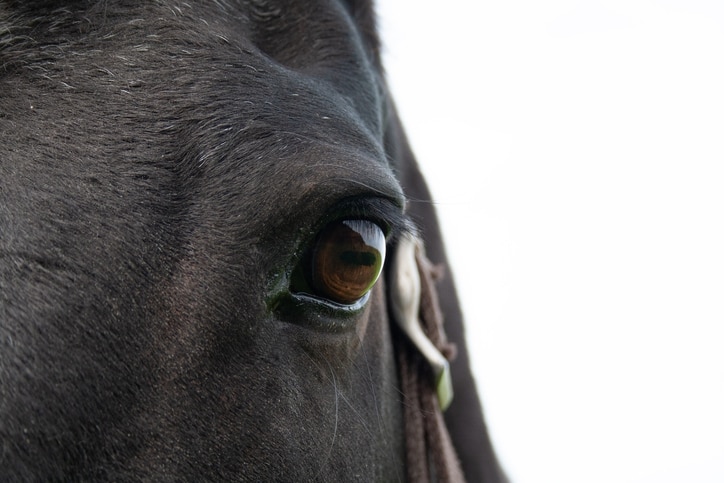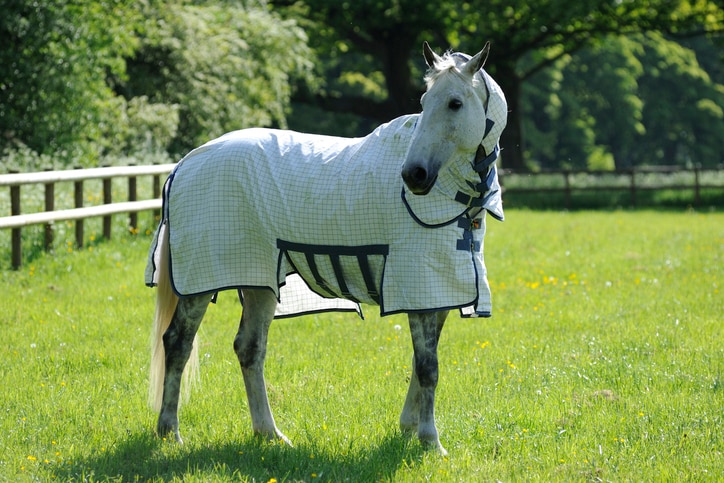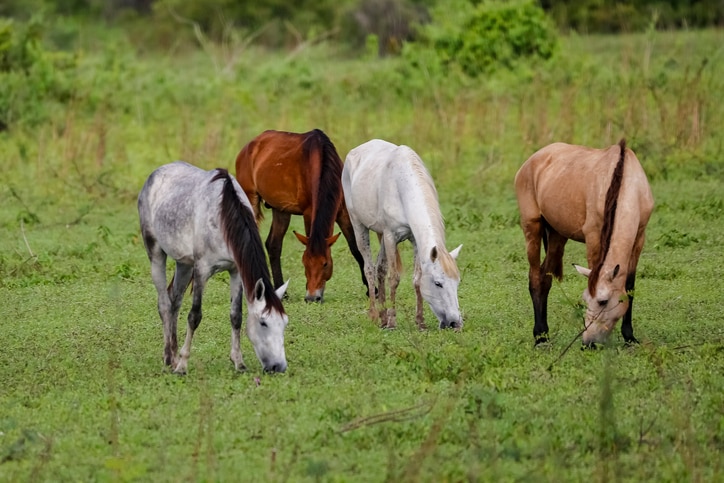Suffering From Horse Allergies, But Want to Ride? Follow These Tips
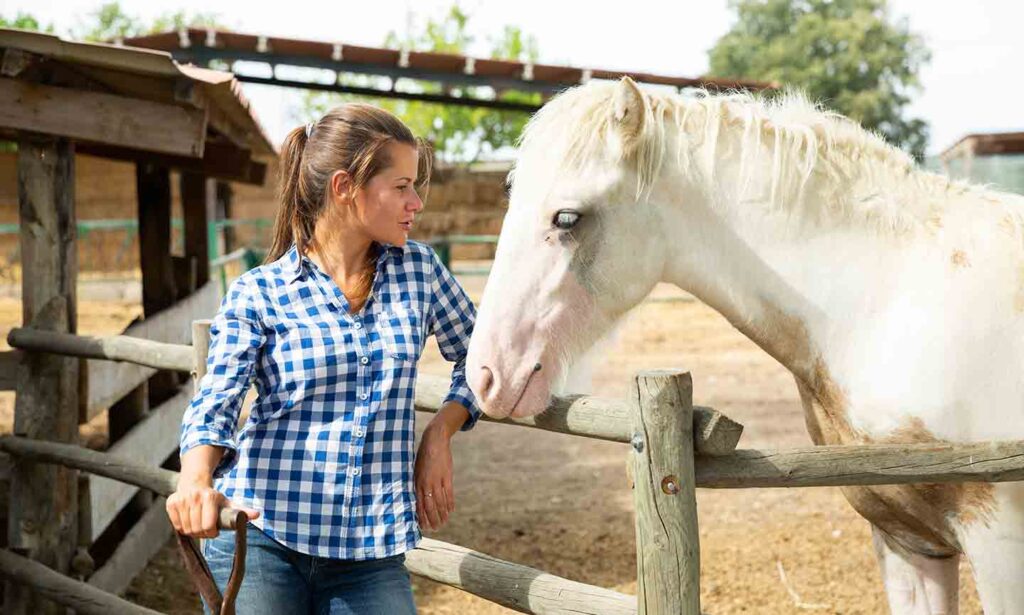
Photo by JackF/Getty
Whether you’re training them, riding them or just watching them play with toys, horses really are a joy to be around. If you’re a horse lover, you may try to surround yourself with horses any chance you get—but what if you end up with itchy eyes and epic sneezing fits every time you do? If this is the case, you might suffer from horse allergies.
If you’re a horse owner who still wants to be able to ride, however, or simply spend any amount of time with horses, don’t give up hope. There are ways to deal with your allergies, from understanding your symptoms to discovering tactics to manage them—without giving up your beloved horses. We spoke to allergy experts to find out how to deal with horse allergies once and for all.
What Causes Horse Allergies?
In the same way that people develop dog allergies, or hypersensitivity to cats and other furry creatures, they can develop an immune response to proteins in horses’ dander, skin, saliva and even urine.
Horse dander allergens are a common cause of symptoms in humans. Essentially, dander is microscopic skin cells that are shed, become airborne, and are inhaled through the nose and mouth when riding or caring for horses.
Saliva is another big offender. It can dry after a horse licks their coat, and the allergens can become aerosolized, or released into the air. Similarly, horse urine, once dry, can become airborne.
Genetic and environmental factors may contribute to the development of equine allergies.
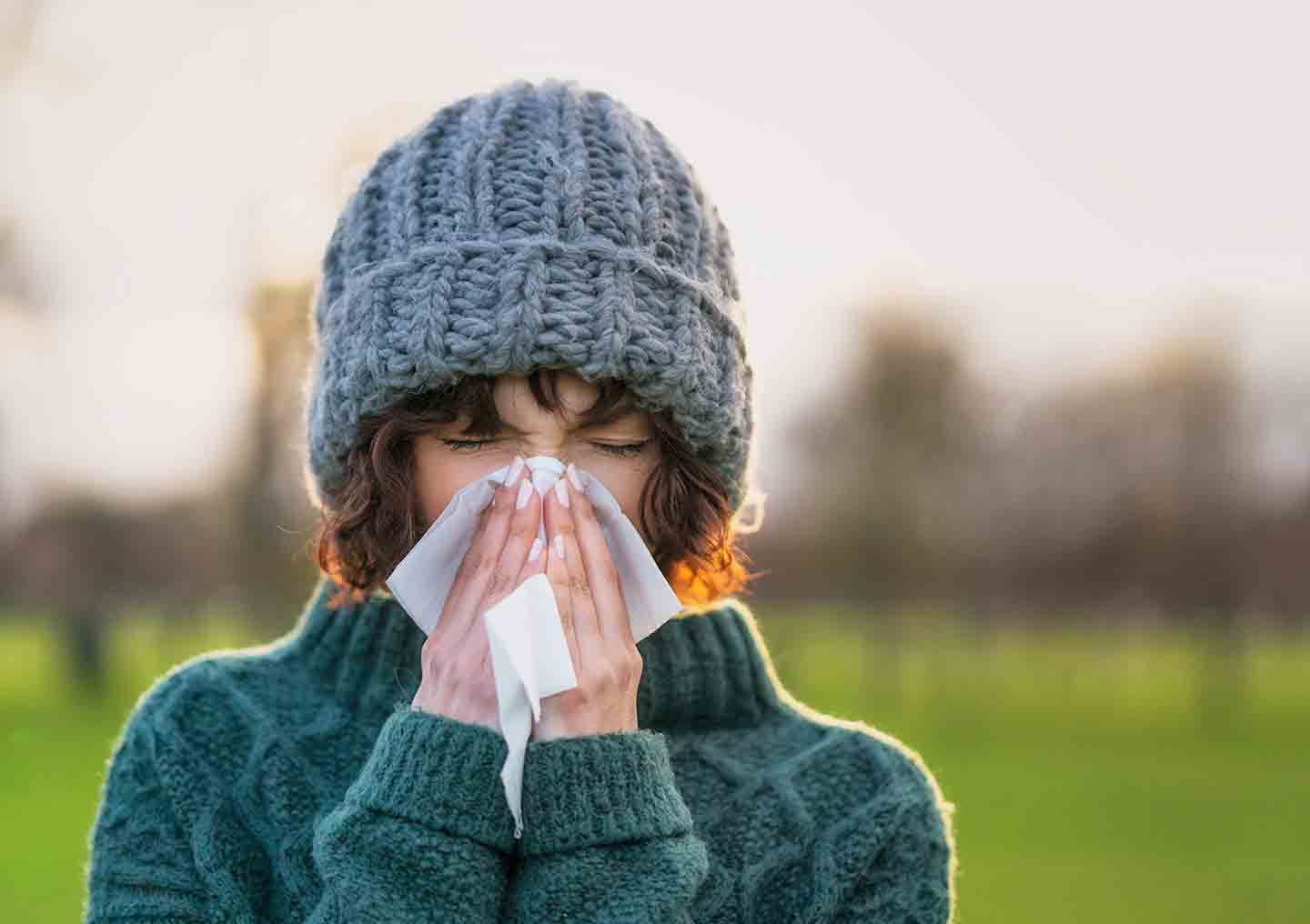
georgeclerk/Getty
Horse Allergy Symptoms
Horse allergies, just like other causes of allergic rhinitis, have a variety of symptoms that can affect an individual’s quality of life. Some of the most common symptoms of horse allergies include:
- Itchy eyes
- Stuffy nose or runny nose
- Postnasal drip
- Frequent sneezing
- Coughing
- Wheezing
- Hives
- Itching in the nose
- Allergic conjunctivitis (itchy, red, watery eyes)
Also, keep in mind that any type of aeroallergen (aka an allergen in the air), such as horse protein, pollen, ragweed or dog/cat protein may trigger asthma symptoms in those predisposed to asthma or those with asthma.
Anaphylaxis
Anaphylaxis is a life-threatening allergic response—and thankfully, it isn’t common when it comes to horse allergies. It can occur, however, depending on how many horse allergens one is exposed to and the severity of their allergies.
Clinical signs of anaphylaxis can include:
- Skin rashes such as hives, or flushing or itching of the skin
- Wheezing and shortness of breath due to swelling of the tongue and throat and constriction of the airways
- Rapid decrease in blood pressure, causing light headedness that may progress to fainting or loss of consciousness
- Less common symptoms like nausea; vomiting; abdominal cramping and/or diarrhea; and uterine cramping in women
More common causes of anaphylaxis are food allergies, medications, latex and insect bites—not aeroallergens. In fact, aeroallergens such as pollens, ragweed, dust mites and furry animal proteins (dog, cat, horse, guinea pig, etc.), are extremely unlikely to cause anaphylaxis. However, aeroallergens including horse proteins can cause asthma exacerbations that may be severe and are treated differently.
Anaphylaxis is an emergency, and these severe allergic reactions require immediate treatment with an epinephrine pen auto-injector and urgent medical care. It’s important for individuals with asthma and severe allergies to horses to avoid exposure and seek consultation with an allergist.
Horse Allergy Diagnosis
The key component of diagnosing a horse allergy is looking at any history of exposure along with subsequent symptoms. If someone has noticeable symptoms—runny nose, sneezing, itchy eyes and/or wheezing after horse protein exposure—the next step is to do skin-prick testing.
This type of allergy testing is done with small amounts of horse allergen extract (containing multiple types of horse protein) placed on the skin on the forearm or back. Then, the skin is gently pricked, allowing the mixture to enter just below the skin’s surface. If the person is allergic to a horse allergen, a raised, red, itchy bump, similar to a hive or mosquito bite, will typically appear within 20 minutes, indicating a positive reaction.
Less commonly, horse allergies can be diagnosed by testing the blood for antibodies to horse proteins.
As you reach a diagnosis, it’s also important to rule out allergies to other things that can be found in a horse stable. One possible offender: grass pollen, since horse hay is composed of dried grasses and other vegetation.
Horse Allergy Treatment
In general, allergists recommend avoiding horses so as not to trigger symptoms. If that isn’t possible—maybe you love riding competitively or you can’t imagine staying away from horses—your doctor may prescribe medications based on your symptoms and severity.
If you aren’t around horses regularly, pretreating prior to exposure with a non-drowsy, over-the-counter antihistamine such as Allegra, Zyrtec or Claritin is recommended. Other medical treatments may include an antihistamine nasal spray, steroid nasal spray, eye drops and asthma inhalers.
For allergy sufferers exposed to horses on a regular basis, allergists often recommend allergen immunotherapy. Allergen immunotherapy alters the immune system over a period of time to desensitize and decrease your body’s reaction to specific allergenic proteins. This may be done via regular allergy shots or allergen extract dissolved under the tongue (sublingual). It’s a long-term treatment, often over several years. There is a risk of anaphylaxis with allergen immunotherapy, so this should only be undertaken in conjunction with an experienced, board-certified allergist/immunologist.
Other Tips for Managing Horse Allergies
In addition to medical treatment, there are other ways to mitigate your allergy symptoms, including:
- Change your clothes as soon as possible after interacting with horses, and wash the clothes you wore at the stable.
- Wash your hands and take a shower, which should include washing your hair, after any horse interactions. This minimizes the transfer of the allergen into your home.
- Wear an N95 mask when riding or caring for horses to decrease the amount of allergen you inhale.
The Best Horse Breeds for People with Allergies
We’ll give you the bad news first: So far, no horse breed is confirmed to be hypoallergenic. In the past, two breeds—the American Bashkir Curly and Russian Bashkir horse—were believed to have lower allergen levels than other breeds. Unfortunately, more recent studies have shown a significant amount of variability between breeds and even between horses within a particular breed, so sadly, there doesn’t appear to be a reliable way to predict how your allergies may react to a specific horse.
But while no hypoallergenic horse breeds appear to exist, there is good news: Stallions (aka uncastrated adult male horses) are thought to have higher allergen levels than other horses. So, you may have better luck sticking to mares (female horses) or geldings (male horses who’ve been castrated).
With the help of a doctor and some smart preparation on your part, you’ve got a shot at decreasing your allergy symptoms as you care for horses, spruce up their stalls, and spend time with them at the boarding facility.
Attributions
Expert input for this story provided by Dr. Purvi Parikh, allergist and immunologist at NYU Langone Health in New York City and an advisor to the Allergy & Asthma Network; Dr. Jenna Podjasek, allergist and immunologist in Chicago; and Dr. Florence Ida Hsu assistant professor of clinical medicine at the Yale School of Medicine in New Haven, Connecticut.




